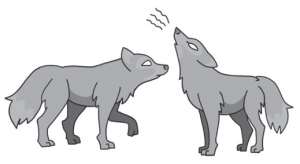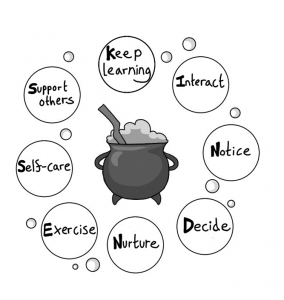by Dr Elaine Beaumont
(lecturer, psychotherapist and co-author of The Kindness Workbook)
Elaine explores the meaning of ‘acts of kindness’, using extracts from the book which was co-written with Mary Welford.
If you look up the word ‘kindness’ you’ll probably find something along the lines of: ‘the quality or act of being helpful, caring, considerate, generous, gentle and thoughtful’. So, kindness is:
- Caring for ourselves and other people
- Doing things that are helpful and improve the wellbeing of ourselves and others
- Being considerate of our own needs and the needs of other people
- Being gentle, patient and tolerant of ourselves and others
It’s common for us to show more kindness to others and receive more kindness from others, than show kindness to ourselves. However, learning to be kind to ourselves, although difficult at times, can boost wellbeing. If you’re kind to yourself (and therefore less critical) you’re likely to:
- Feel more confident
- Do the things you’ve always wanted to do
- Be more assertive and stick up for what you believe in
- Challenge yourself
- Learn from your mistakes (rather than avoid making them)
- Take part in activities you once enjoyed (or new activities you want to try)
- Experience less anxiety, low mood and/or frustration
The popular legend of the Two Wolves is a nice example that demonstrates how we all have internal battles going on inside us. The good news is that you can learn to feed the kind, compassionate, generous you.

The Two Wolves
One evening a grandfather was teaching his young grandchildren about the internal battles each one of us faces. ‘There are two wolves fighting inside each of us,’ he said. ‘One wolf is vengeful, angry, resentful, self-pitying and scared . . . the other wolf is compassionate, joyful, generous, kind, faithful, hopeful and caring . . .’ The children thought about this for a moment or so and one asked: ‘Which wolf wins, Grandfather?’
The grandfather smiled a knowing smile and replied, ‘The one you feed.’
Covid-19 and being kind
One thing that has stood out to many of us during the pandemic is how much kindness and compassion has made a difference. Captain Sir Tom Moore and Marcus Rashford really helped lift the nation’s spirits and had a positive impact on many people’s lives. Even small acts of kindness can boost people’s mood. For example, a neighbour of mine put notes through letter boxes offering to help people with their grocery shopping. A small gesture (in comparison to the achievements of the likes of Marcus Rashford), but nonetheless ‘kindness in action’.
17th February 2022 is Random Acts of Kindness Day – can you think of an act of kindness you can do for yourself or for somebody else? Can you look in the mirror and say something kind to yourself or remind yourself that you’re doing the best you can right now? Can you compliment a stranger, a neighbour or someone you care about? Being kind to others also make us feel good too.
Acts of Kindness
Here are a few examples of how we can show ourselves and other people kindness.
| Small Acts of Kindness |
|
Ask a friend how they are doing Cook a healthy meal for yourself Smile and say hello to somebody Be mindful of how much sleep you need Make a card for yourself or somebody else Send a nice text message to somebody who is sad or struggling Look in the mirror and say something kind to yourself Practice mindfulness Write a note to yourself about 3 things you are grateful for Ask someone how their day has been Say well done to somebody who has done a good job Do something kind for yourself Give yourself and somebody else a compliment Say thank you to somebody who has done something for you Add a supportive and kind comment on social media Take a break from social media if that would be a kind thing to do for yourself |
Being kind to yourself is sometimes easier said than done but there are a number of techniques and skills you can practice that can help you tone up your kindness skills. The charity, Anxiety UK has created the K.I.N.D.N.E.S.S mnemonic for people to use as a reminder to be kind to themselves and others. The memory aid is a prompt to help people focus on the key (kindness) ingredients that help build and maintain physical and mental health. The “kindness ingredients” are:

- Keep learning
- Interact
- Notice
- Decide
- Nurture
- Exercise
- Self-care
- Support others